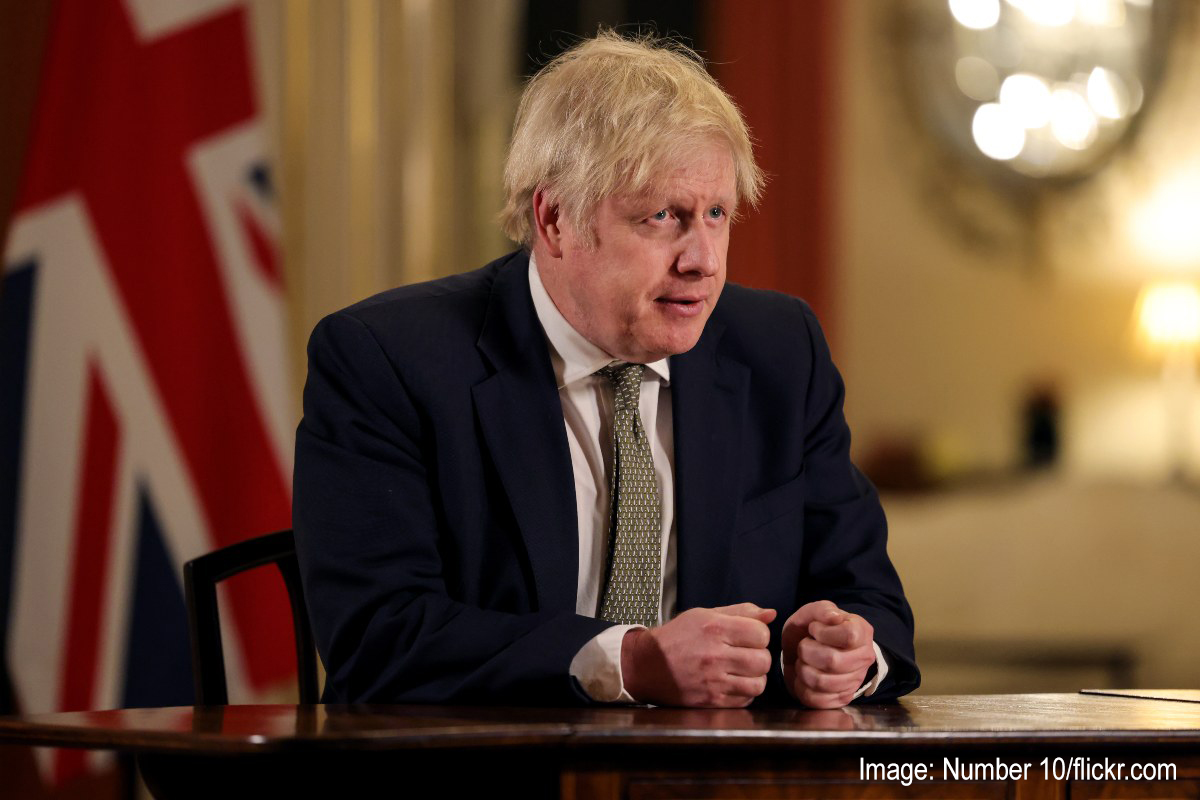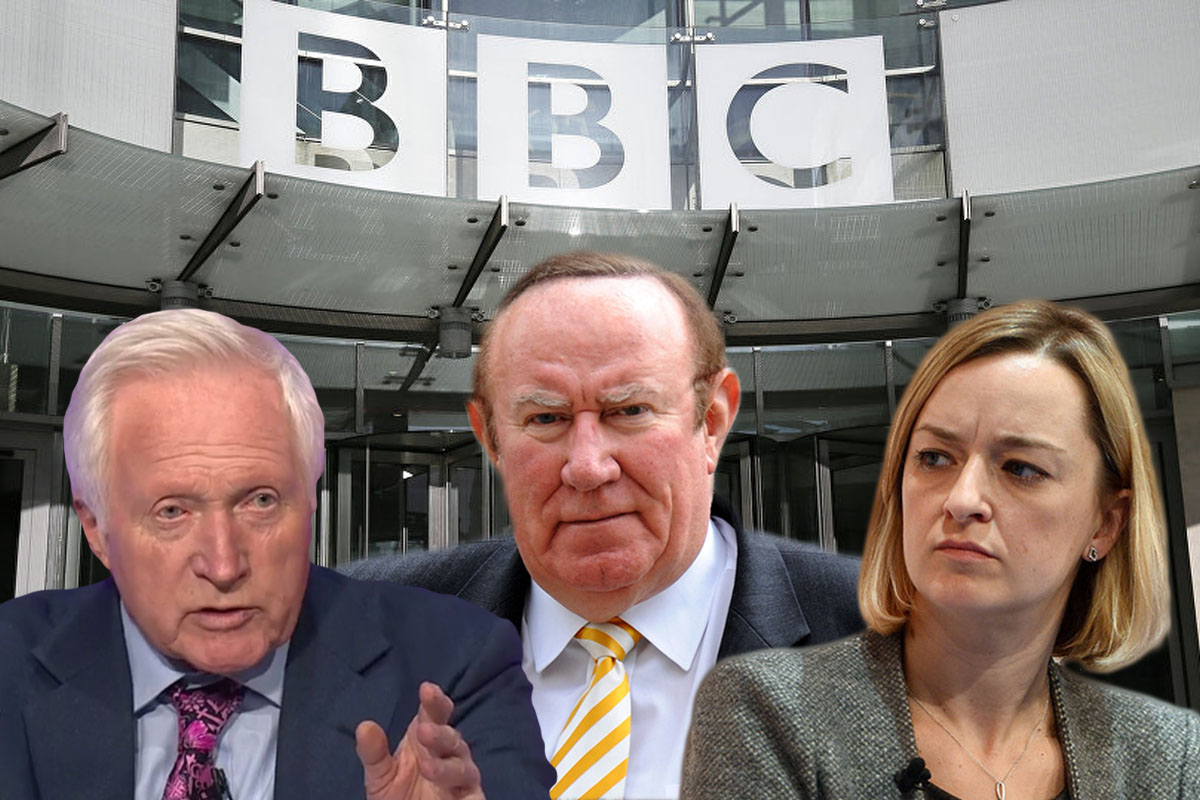In order to distract from the political crisis engulfing Downing Street, the Tories have made a move to cut BBC funding. Liberal outrage will not protect media integrity or jobs. Instead, the labour movement must fight for workers’ control.
Earlier this week, Tory culture secretary Nadine Dorries announced plans for a two-year freeze to the BBC licence fee, and its subsequent abolition from 2027.
The timing of this announcement was a cynical attempt to deflect attention from the crisis surrounding Boris Johnson, who faces mounting pressure from the media and his own MPs over the #Partygate scandal.
These duplicitous motivations were confirmed by the fact that Dorries later rolled back on her initial statement, with her earlier pledge to abolish the licence fee replaced by a vague promise to ‘review’ the BBC’s funding model in the future.
In either case, it is overworked staff at the BBC and independent production companies – who create much of the BBC’s content on shoestring budgets – who will pay the price for this blatant opportunism by the Tories.
Operation Red Meat

Dorries stated that this latest move was intended to help ordinary families struggling with rising living costs. This is far from convincing, however, given that households will only save around £10 a year from the fee freeze; and given the indifference and inaction that the government has shown towards soaring energy bills.
The primary reason for this measure, in reality, was to appease the ranks of the Tory Party, as part of Downing Street’s ‘Operation Red Meat’: a desperate plan by the Prime Minister to win support from Conservative backbenchers and voters – and thereby cling onto power – by throwing them a number of reactionary policies, and further whipping up the ongoing culture war.
Despite its consistent attacks on the left and bias against the labour movement, for the rabid MPs who Johnson is appealing to, the BBC is not right-wing enough. In their eyes, ‘Auntie Beeb’ has been hijacked by Europhile liberal types, who are seen as being soft on issues like Brexit, immigration, and trans rights.
And with establishment journalists at the BBC amongst those who have turned on the Tory leader in recent weeks, Johnson and his ministers have no doubt spied an opportunity to kill two birds with one stone: intimidating critics in the media with threats of funding cuts, whilst also placating the rank-and-file rabble in the Conservative Party.
Establishment mouthpiece

Both Labour leaders and liberal commentators have denounced this move as scandalous: not for the government’s attack on workers at the BBC and in the wider media and culture sector, however, but for the damage that this budget cut will inflict upon this supposedly ‘cherished institution’ – that is, on British imperialism’s soft power.
“The BBC is the glue of the nation,” stated The Guardian in a nauseating editorial, summarising the liberal establishment’s position, “bringing people together with its sports coverage and landmark dramas and documentaries.”
“Dissolving those bonds is in no one’s interest,” the article’s authors continued.
Neither statement is true, however. Far from being an ‘impartial’ voice of ‘the nation’, the BBC is and always has been a mouthpiece of the British establishment.
The BBC’s board, commissioners, and senior journalists are packed with out-and-out Tories. Allegra Stratton (now infamous for her comments about ‘cheese and wine business meetings’), for example, prior to becoming a government spokesperson, and then the Downing Street press secretary under Boris Johnson, was the political editor of BBC Two’s Newsnight.
Robbie Gibb, meanwhile, who held the same press position under Theresa May, was the head of political programming at the BBC between 2008 and 2017.
And for anyone still in any doubt, the most crystal clear confirmation of Beeb bias came from Boris’ former political advisor Dominic Cummings, who revealed the following about the relationship between the government and the BBC:
“The main person…I spoke to in the whole of 2020 was Laura Kuenssberg [chief political correspondent] at the BBC…because the BBC has a special position in the country…I was in the room for certain crucial things; I could give guidance to her for certain big stories.”
In short: the BBC is the UK’s state broadcaster; a propaganda machine for the ruling class – no different from Press TV in Iran or RT in Russia. And that is why the mainstream media, the right-wing Labour leaders, and co. have reacted with such a hue and cry to this cynical move by Boris Johnson and the Tories.
Workers under attack

Contrary to what The Guardian says, meanwhile, this attack on BBC funding certainly is in someone’s interest: both Boris Johnson’s personal interest, to distract from his political failings through a manufactured culture war; and the interests of private media bosses, who will seek to fill the vacuum and profit from the decline of the BBC.
At the same time, workers in the media industry – who are already in a precarious position – will face the brunt of these austerity measures, in the form of cuts to job, pay, and conditions.
A recent survey by the Time Project, for example, found that media workers already put in 10-plus hours a day, far above the national average, alongside experiencing enormous disparities in pay.
As well as these poor working conditions, however, media workers also have little editorial control or artistic freedom – especially at the BBC.
“All of us who are working in development are frustrated by these bloody TV execs and commissioners,” stated one worker in the industry privately. “We try really hard for new stories to be picked up, but instead it’s Tudors, WW2, and the Royals every time!”
Ownership and control
This raises the need for media and journalism unions – such as BECTU and the NUJ – to not only fight back against the coming cuts, and explain why these are happening, but to also expose the BBC’s real role as a tool of the establishment.
Unfortunately, however, BECTU’s recent statement against the licence fee freeze simply seeks to defend the broken status quo.
Instead of the current bankrupt model, a workers’ alternative must be boldly put forward: one that puts the BBC – and the entire media and culture industry – under democratic workers’ control, with funding coming from the expropriation of the super-rich.
As part of this, the entire apparatus of the mainstream media, including the studios, editorial suites, and other key resources, need to be taken out of the hands of the billionaire class, brought under public ownership, and placed directly in the hands of organised workers.
Use of public broadcasting, news outlets, and wider media resources, meanwhile, should be democratically allocated to groups and organisations according to the real level of support their viewpoints hold in society, not the size of their bank balances.
Our media will never be truly free, as long as it is owned and run by the capitalists, for the capitalists. Instead, it must be owned and run by the working class, for the working class. This is the socialist alternative that the labour movement must fight for.






